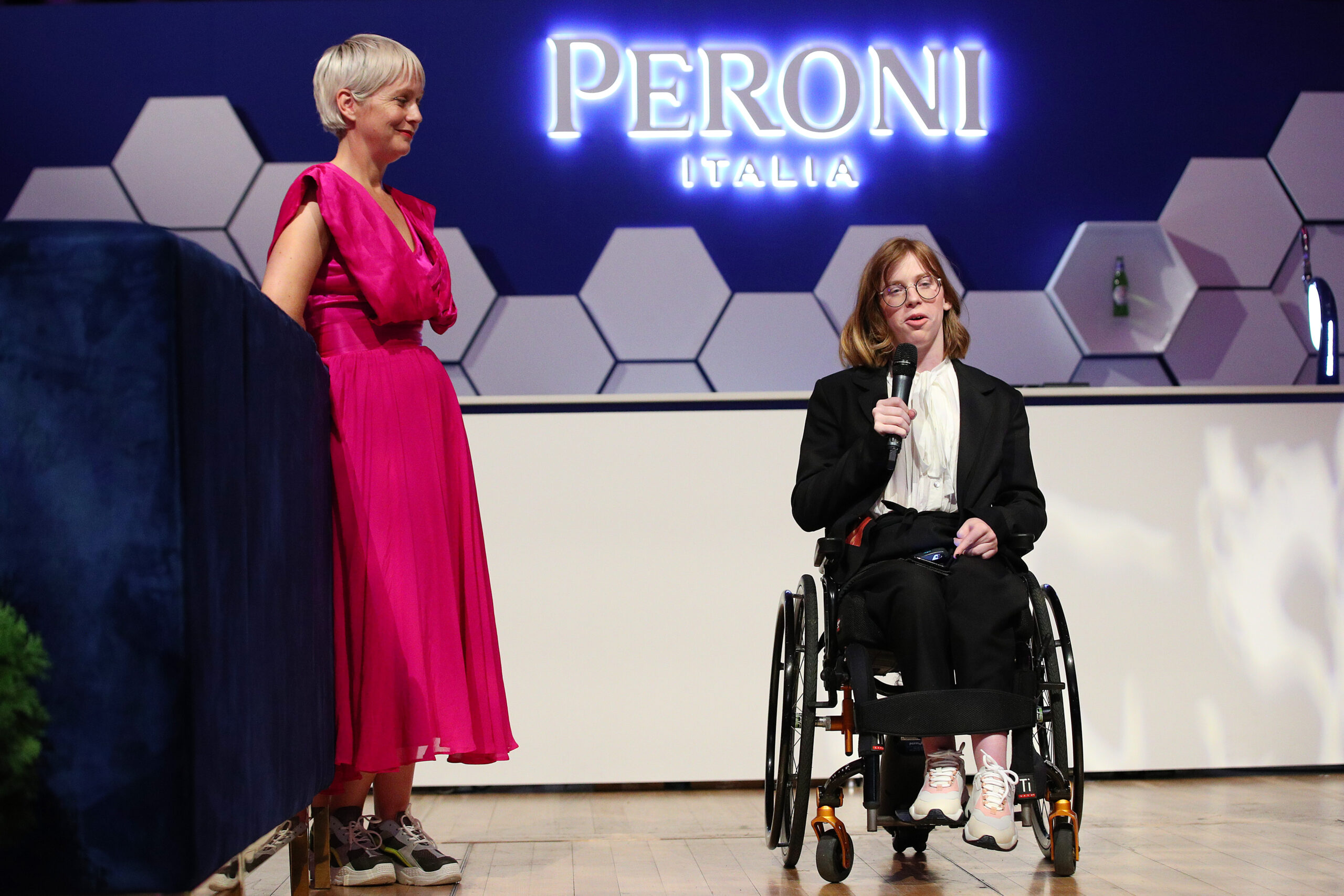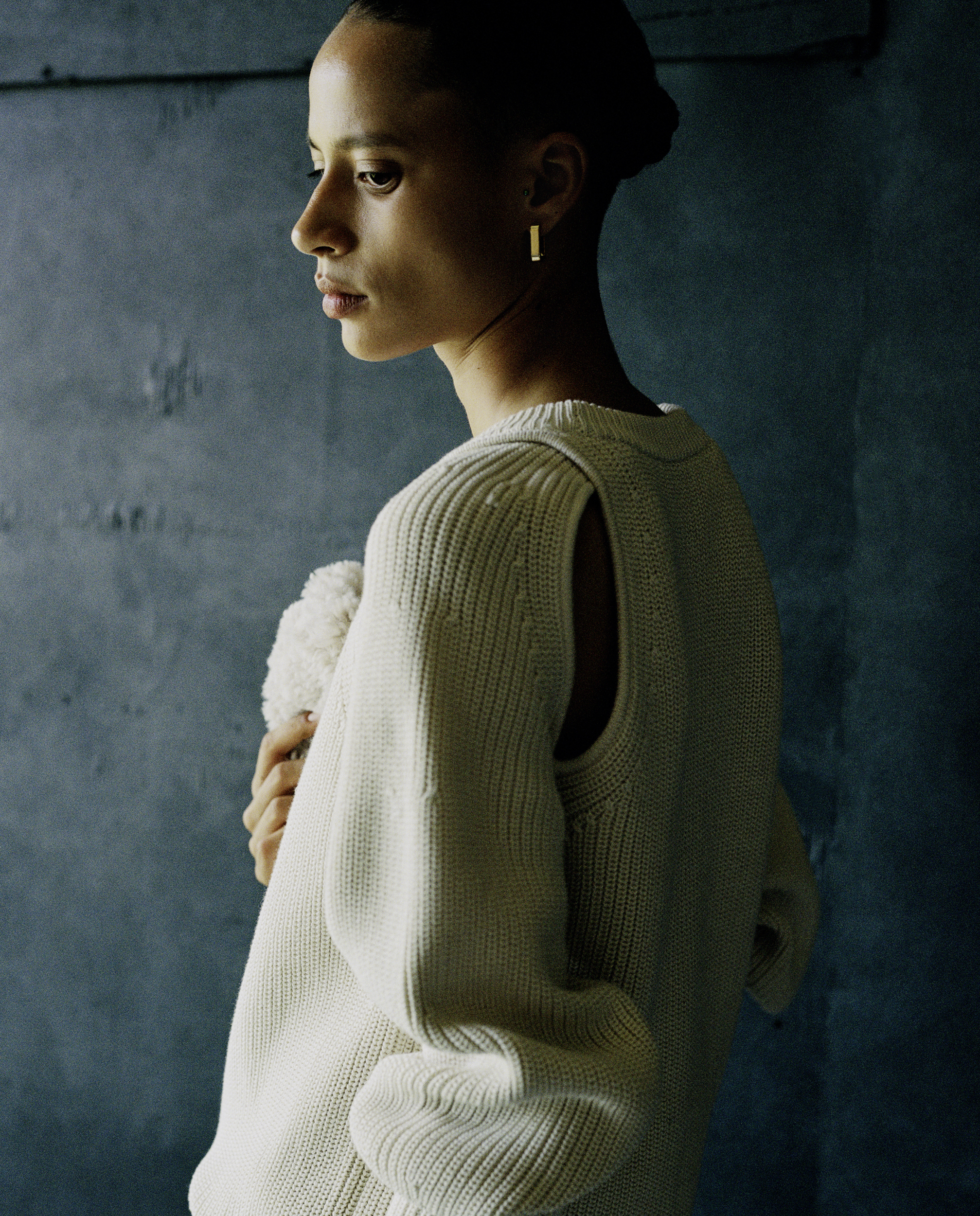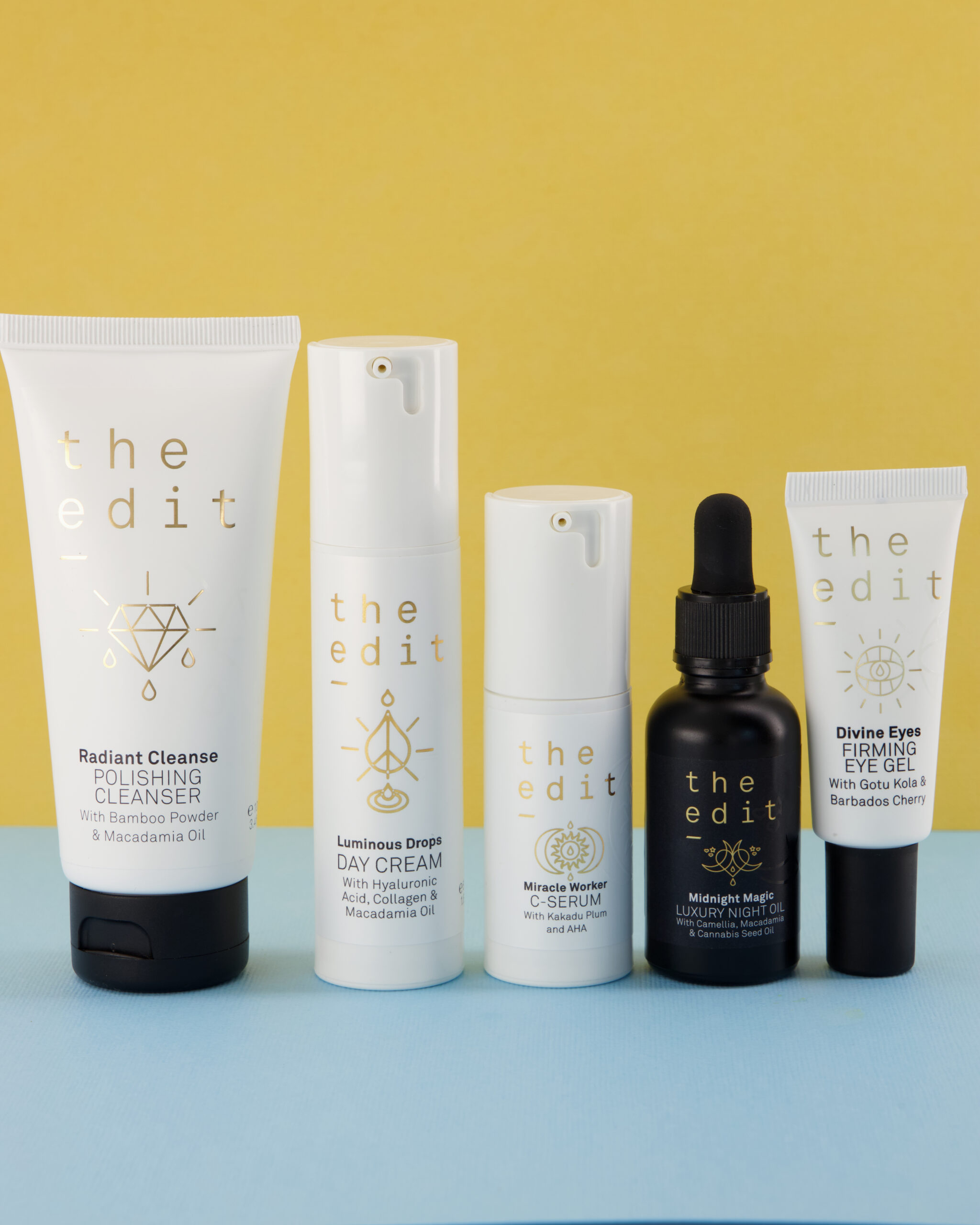All Is For All founder Grace Stratton believes having the conversation about accessibility through fashion has the power to disrupt systems of thought arguably more so than any other industry.
By Carolyn Enting
Dressed head-to-toe in Zambesi, Grace Stratton had a powerful message for the fashion industry, assembled for this year’s grand opening of New Zealand Fashion Week.
Accessibility advocate and founder of fashion website All Is For All, Stratton welcomed the conversation that NZ Fashion Week has opened this year around sustainable and ethical fashion, accessibility and diversity. She also declared New Zealand Fashion Week 2019 officially open.
“People who have access needs and disabilities navigate a world whose overwhelming voice tells them their differences are not valued or considered. This occurs at all touch points from employment to education in the workforce, commercial and social settings. Alongside Angela Bevan and communications agency Sweeney Vesty, I founded All Is For All. Our goal is to challenge and ultimately silence this voice by leveraging the cultural relevance of fashion into a transformative action so that we can achieve an accessible society and fashion industry,” said Stratton.
“An accessible, inclusive and diverse society is one which values and celebrates difference. It is a space where physical and neurological diversity, gender equality and cultural differences are the norm.
“We decided to begin this movement from inside fashion because fashion informs the world. It has the power to disrupt systems of thought arguably more so than any other industry. New Zealand Fashion Week’s focus on diversity this year is a bold step toward ensuring that we design this space and ultimately the New Zealand retail industry as a whole for the modern fashion consumer who today purchases with ethics and equality at front of mind.”
Stratton shared that over the past few weeks a lot of people have said to her how great it is that New Zealand fashion is finally accepting of people with access needs.
“I do not believe that there is a lack of desire nor an intentional will to build barriers. Our incredible models with access needs, six of them this year, were cast because they are damn good. I believe that over decades we have convinced ourselves that we must do things a certain way and this has prevented us from innovating. It is up to each of us to challenge the thought narratives which prevent inclusion in our fashion industry and in the world,” she said. “Often, once you break down a barrier to entry, people will wonder why it was there in the first place. People with access needs or disabilities do not need your pity. Nor your charity. We do not need to be able bodied in order to succeed and you don’t have to call us inspirational for doing the bare minimum of living. What we do need is the time and space to explore who we are. People with access needs deserve to feel like anything is possible, and to have an active role as a global citizen. As a mechanism for self-expression, that is arguably stronger than any other, the fashion industry must make space to support and enable this.”
Stratton acknowledged the incredible work of New Zealand Fashion Week this year and the designers who have worked with All Is For All models. “To understand and implement accessibility as much as possible. This is the first step in a journey toward a Fashion Week like no other. And we cannot wait to learn more and work alongside this team in future years,” said Stratton.
NZ Fashion Week founder Dame Pieter Stewart said it was time to hold a mirror up to the industry as it evolves before our eyes, considering how much more change is needed and what exciting opportunities that could bring. To answer the questions, what can the fashion industry do to be more inclusive? How can new technologies help make fashion more sustainable? How can fashion better address the needs of disabled people? What should fashion do to protect the people who make our clothes?
“It’s a big subject. And a direction that will be persisted for Fashion Week and Fashion Weekend with designers looking for occasions to not only showcase their collections, but also to demonstrate the progress at the best possible level of sustainable and ethical business practice,” said Stewart. “We want to support our designers and encourage everyone about making conscious decisions about what they can do towards sustainability. And as an organisation we are doing the same. This week aiming to have 70 per cent of our waste not go to landfill. There are many ways these changes are occurring. The lifespan of fashion products has been stretched as pre-owned, refurbished, repaired and rental business models continue to evolve. Across many categories consumers can shift to newer ways of accessing product. Our designers produce beautiful product. Well-made clothes that deserve several lives not just one.”







